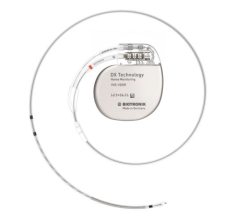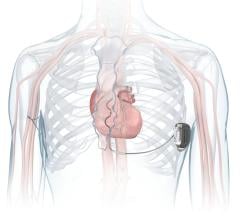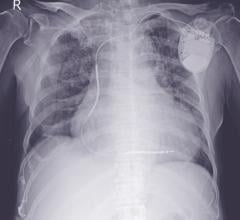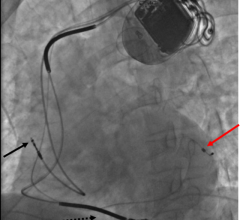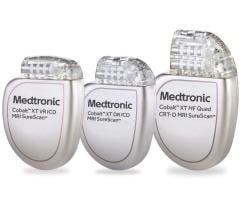September 1, 2008 - More than 22 million people worldwide suffer from heart failure, and most heart failure hospitalizations are due to excessive fluid accumulation in the chest cavity, and new data presented at the European Society of Cardiology Congress this week shows Medtronic’s devices equipped with OptiVol Fluid Status Monitoring Alerts may give advance warning of a patients’ worsening condition.
Two-year follow-up data, presented by Dr. Maurizio Landolina of Italy, shows there may be as much as a 50 percent reduction in the number of hospitalizations it chest fluid accumulation is monitored.
“Heart failure is a progressive condition, frequently marked by worsening symptoms such as fluid build-up in the chest cavity, which often must be addressed in hospital,” said Dr. Landolina of Fondazione Policlinico S. Matteo IRCCS, in Pavia, Italy. “Our research team concluded that devices with OptiVol may detect this decompensation in a broad population of heart failure patients. By allowing the chance for timely discovery and prompt intervention, the alerts could lead to a reduced number of events such as heart failure hospitalizations.”
OptiVol Fluid Status Monitoring is found Medtronic cardiac resynchronization therapy-defibrillators (CRT-Ds) and implantable cardioverter-defibrillators (ICDs). It uses low electrical pulses that travel across the thoracic cavity (the chest area encompassing the lungs and heart) to measure the level of resistance, indicating fluid in the chest - a common symptom of heart failure. Since normal fluid levels vary from patient to patient, and fluid accumulation can be either slow or rapid, OptiVol’s ability to measure fluid status trends over time can provide important insights that are used in conjunction with ongoing monitoring of other patient symptoms.
Remote management of cardiac device patients with OptiVol who can be done using Medtronic’s CareLink Network. Physicians in Europe can pre-program Medtronic wireless devices with CareAlerts signals, which are designed to give automatic notification to the physician via text message, e-mail or a Medtronic CareLink Web site message when a patient’s individualized OptiVol threshold is crossed, without the physician having to see the patient in-office for diagnosis.
The study Involving 532 patients at 34 Italian centers, the purpose of the study was to describe the use of intrathoracic impedance monitoring in clinical practice, and evaluate the clinical usefulness of the associated alert in reducing clinically relevant events and heart failure hospitalizations. There were 362 documented OptiVol events in 230 patients (43.2 percent of patients). Clinical events (i.e. hospitalization, heart failure deterioration without hospitalization, pneumonia, and others) occurred within two weeks of 47 percent of the OptiVol events. Another 20 percent of the OptiVol events were judged reliable and the drug therapy was adjusted, despite the absence of overt signs of clinical deterioration.
In the U.S. OptiVol Alerts are investigational and not currently available.
For more information: www.medtronic.com


 January 13, 2026
January 13, 2026 


